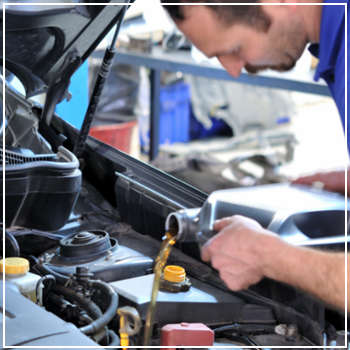But how do you know if your transmission is having problems? Here are some key signs to look out for: If you press the gas pedal hard and the car hesitates to shift gears or doesn't shift at all, that’s a big red flag. This is especially problematic when you’re trying to merge onto a highway, climb a hill, or navigate through an intersection. Your car needs smooth gear shifts to handle these situations safely. Has your car suddenly started shifting gears poorly? Maybe you’ve noticed a loud, clunking sound when you switch gears. These kinds of issues often happen after an accident when internal components get displaced. When this happens, your transmission might stay stuck in one gear or jump to the wrong one. If left unchecked, this can create debris that contaminates the cooling system. Another possible cause is a broken gear, which disrupts the rotation of the drive axle. A heavy impact can crack the transmission system, causing fluid to leak out. Alternatively, a broken seal might be the culprit. As soon as you spot fluid pooling under your car, get it checked out to avoid further performance issues. Even without visible leaks, low transmission fluid levels can wreak havoc. Insufficient fluid affects the system’s ability to function properly, leading to poor performance or even complete failure. The torque converter might also be involved. A faulty component or jammed clutch could prevent the fluid from building pressure and circulating through the system, impacting how the car operates. If it’s the clutch causing trouble, you might feel vibrations coming from underneath the vehicle, experience excessive heat, or notice your engine lacking power. Lastly, a damaged solenoid can alter how the fluid moves through the system, resulting in insufficient fluid levels. Since solenoids are critical for starting the engine, this issue might be accompanied by slipping gears or electrical problems. When your car’s transmission seems unresponsive, it could point to broken bands. These bands control how the gear sets engage and operate. In severe cases, the transmission might stop working altogether. Some of these problems can be traced back to accidents, like rear-end collisions or towing that causes overheating. However, many transmission issues arise naturally over time due to regular wear and tear. Either way, it’s essential to bring your car to a professional mechanic like DaSilva’s Auto Body to diagnose and fix any problems. Contact us today to schedule an appointment—we’ll make sure your car gets the attention it needs. Remember, ignoring these signs could lead to costly repairs down the line. Don’t wait until it’s too late—take care of your car now! Rubber Powder Grinder Machine is used to grind rubber granules to rubber powders, the size of rubber powder can be controlled by adjusting the milling discs distance. Rubber Powder Grinder Machine,Rubber Milling Machine,Rubber Fine Powder Machine,Rubber Discs Grinding Machine WUXI DEIICHEN MACHINERY PTY.,LTD , https://www.dicmachine.com So, your car’s acting weird, and you decide to bring it in for a check-up. Turns out, the transmission's busted. You're probably wondering what that means. Well, your car's transmission is super important—it’s like the brain of your vehicle’s movement system. It’s made up of lots of parts that work together, so if one part goes haywire, it can mess everything else up too. Sometimes, though, the damage isn’t obvious right away and might take time to show itself.
So, your car’s acting weird, and you decide to bring it in for a check-up. Turns out, the transmission's busted. You're probably wondering what that means. Well, your car's transmission is super important—it’s like the brain of your vehicle’s movement system. It’s made up of lots of parts that work together, so if one part goes haywire, it can mess everything else up too. Sometimes, though, the damage isn’t obvious right away and might take time to show itself.Slipping Transmission
Shifting Problems
Transmission Fluid Issues
No Response from the Transmission
4 Signs of Transmission Damage
Next Article
2-Alarm fire in Des Plaines, 1-5-23